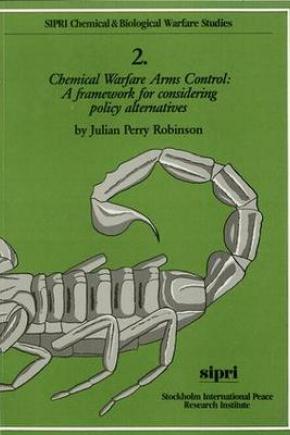Chemical Warfare Arms Control: A Framework for Considering Policy Alternatives
This monograph focuses on the Geneva disarmament enterprise. What is attempted here is an overview: a way of thinking about chemical weapons from the standpoint of national policy-making in a manner that integrates both defence and arms-control aspects. No particular recommendations for policy are made, although the monograph is illustrated with examples of the sorts of conclusions that might be drawn from the analytical framework. Express attention is paid to some highly relevant considerations which the customs of diplomacy tend to push beneath the surface of intergovernmental discourse in Geneva—the influence of domestic interests and the need for a symbiotic relationship between national intelligence machinery and international verification machinery. The principal focus is on the core issue of verification.
Contents
1. The purpose of the Geneva negotiations
2. The scope of the projected Chemical Weapons Convention
3. National security and the relative value of policy alternatives
4. The threats posed by chemical weapons
5. Assurance and verification
6. Rules and procedures of the projected treaty regime
7. The analytical framework completed
Annex. The value of chemical weapons for deterrence
About the author
Julian Perry Robinson is a SIPRI Consultant based in England. A chemist and lawyer by training, he was a member of the SIPRI research staff during 1968-71 and has held research appointments at the Harvard University Center for International Affairs, the Free University of Berlin, and the University of Sussex, UK, where he is currently a Senior Fellow of the Science Policy Research Unit. He has served as a consultant to the World Health Organization, the United Nations Secretariat, the International Committee of the Red Cross and the UN Environment Programme.
SIPRI Chemical & Biological Warfare Studies is a series of occasional papers intended primarily for specialists in the field of CBW arms control or for people engaged in other areas of international relations or security affairs whose work could benefit from a deeper understanding of particular CBW matters. The papers originate in studies commissioned by SIPRI as input for subsequent non-specialist SIPRI publications.

